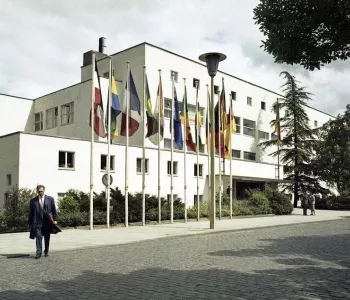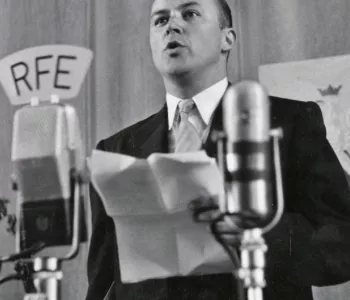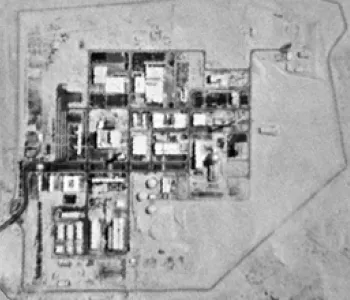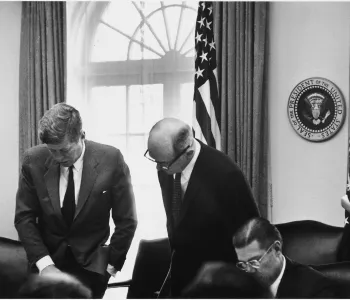d'Vinci

Rostow, W. W. (Walt Whitman) 1916- 2003
Rostow served as an adviser on national security affairs under John Kennedy and Lyndon Johnson administrations.

Walt Whitman Rostow was an American economist and political thinker prominent for his staunch opposition to Communism and belief in the efficacy of capitalism and free enterprise. Rostow served as an adviser on national security affairs under John Kennedy and Lyndon Johnson administrations. He supported American military involvement in the Vietnam war, believing it possible and desirable to halt the advance of Communism by force if needed. In his later years he taught at Lyndon B. Johnson School of Public Affairs at the University of Texas in Austin. He wrote extensively in defense of free enterprise economics, particularly in developing nations.
Walt Rostow was born in City of New York in a Russian immigrant family. His name is a reference to Walt Whitman, an American poet. Rostow attended Yale University, graduating at age 19 and completing Ph.D. dissertation in 1940. He also won the prestigious Rhodes Scholarship to study at University of Oxford. After completing his education he started teaching economics at Columbia University.
During World War II he served in the OSS under William Donovan. Rostow became Assistant Chief of the German-Austrian Economic Division in the United States State Department in Washington D.C. immediately after the war. From 1946 to 1947, he returned to Oxford to teach as the Harmsworth Professor of American History. Rostow became the Assistant to the Executive Secretary of the Economic Commission for Europe, in 1947 and was involved in the development of the Marshall Plan. He spent a year in 1949 at Cambridge University as the Pitt Professor of American History. Rostow was Professor of Economic History at the Massachusetts Institute of Technology from 1950 to 1961 and a staff member of the Center for International Studies, MIT from 1951 to 1961. In 1958, he became a speech writer for President Dwight Eisenhower.
In 1961, President John F. Kennedy appointed Rostow Deputy Special Assistant to the President for National Security Affairs reporting to McGeorge Bundy. Late in 1961, he was then appointed as counselor of the Department of State and Chairman of the Policy Planning Council, Department of State. Rostow wrote President Johnson's first state of the union speech and was appointed by Johnson in May 1964 United States Member of the Inter-American Committee on the Alliance for Progress (CIAP).
In early 1966, he was named special Assistant for National Security Affairs (the post now known as National Security Advisor) where he was a main figure in developing the government's policy in the Vietnam War, and where he remained until February 1969. His pro-war and pro-free-enterprise views made him highly unpopular in the social sciences sector of the American academia that was staunchly left wing at the time. However, he was able to get an academic position at Lyndon B. Johnson School of Public Affairs at the University of Texas in Austin the Rex G. Baker, Jr. Professor Emeritus of Political Economy. He continued to teach history and economics until his death in 2003 at the age of 86.
Rostow developed the Rostovian take-off model of economic growth, one of the major historical models of economic growth. The model argues that economic modernization occurs in five basic stages of varying length - traditional society, preconditions for take-off, take-off, drive to maturity, and high mass consumption. He received the Order of the British Empire (1945), the Legion of Merit (1945), and the Presidential Medal of Freedom (1969).









